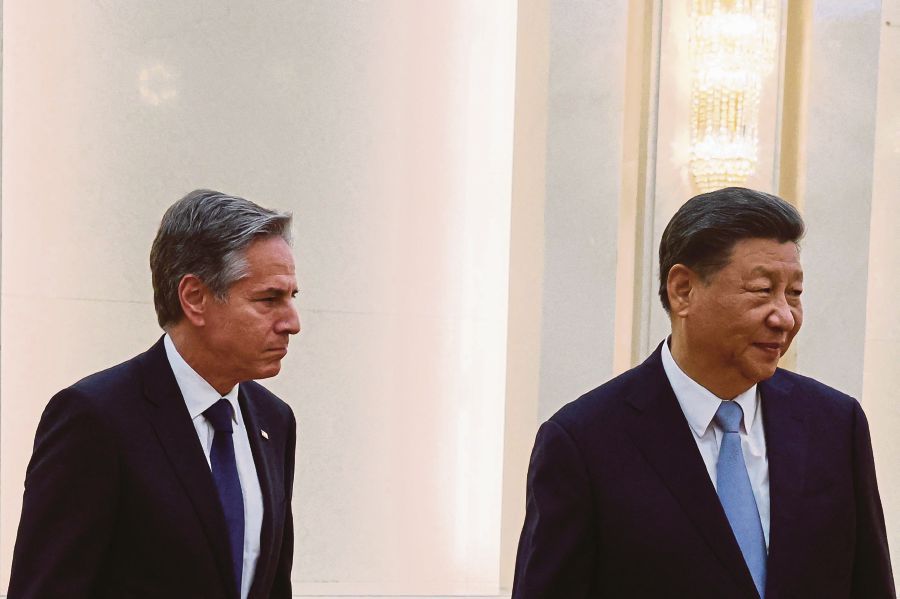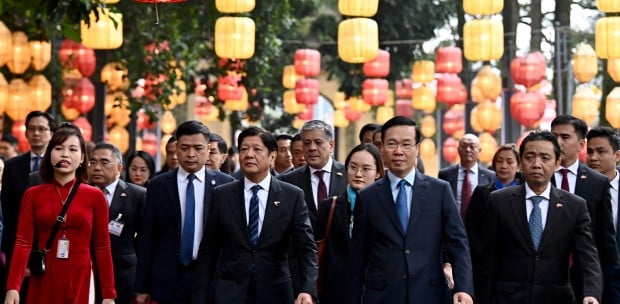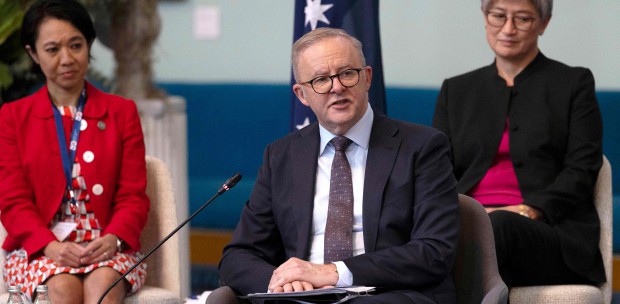ASEAN nations must have heaved a huge sigh of relief that United States Secretary of State Antony Blinken finally made it to Beijing to salvage nosediving Sino-American relations.
Geopolitical pundits, including the 100-year-old eminence grise, Dr Henry Kissinger, have rather darkly hinted that war is inevitable — even imminent — given the trajectory of what is commonly characterised as the world's most important bilateral relationship today.
It may be hard to imagine that hawks and hardliners in both capitals are baying for a violent confrontation that will be globally catastrophic.
The greater fear, of course, is that descending into the trough will only increase the chance that a miscalculation triggers an ugly confrontation that both countries may be hard put to back down from.
Hence, this important Blinken trip, which the Americans will say is aimed at erecting "guardrails" so that an increasingly testy and competitive relationship can be managed within some mutually agreed parameters.
This trip, once postponed, is meant to be a follow-up to a summit between the American and Chinese presidents in Bali at the end of last year.
A series of high-level bilateral meetings preceded this Blinken visit. The atmospherics and body language on display, including a meeting with Chinese President, Xi Jinping, suggest there is genuine desire from both sides to manage the serious slide in relations.
Nobody seems to be suggesting, though, that a meeting of minds is imminent, or even possible. Too much has gone on in the years since the ascent of Donald Trump to the US presidency, which led the Sino-American relationship to its current nadir.
There is enough blame being traded across the Pacific for such a state of affairs.
Thus, as Singapore Foreign Minister Dr Vivian Balakrishnan suggested, Blinken's trip to China was essential but not sufficient to put the two countries' ties back on an even keel.
There is a yawning gap in both countries' understanding and perception of each other and, therefore, in their respective expectations of outcomes.
Recent events have conspired to make it unlikely that there can be any revival of the golden era of Sino-American collaboration, especially economically.
Indeed, de-globalisation seems to be increasingly entrenched as the new economic norm as the US and the West seek to "de-risk" from growing economic dependence on China, in the wake of Beijing's decision to strengthen ties with Moscow in spite of the ongoing war in Ukraine.
Unfortunately, China's claims over the South China Sea, which overlap those of several South-east Asian countries, including Malaysia, have only added to regional tensions and make it less, not more, likely that the US will be pushed out of the region, as China hopes.
The Philippines has seen fit to enhance its military ties with its treaty ally, the US, as a bulwark in the face of Chinese incursions into Philippine waters.
Dr Balakrishnan, on a visit with Blinken just before the latter left for China, has explicitly stated that Singapore wants the US to remain a Pacific power.
What Asean countries want is not having to choose between the incumbent superpower (the US) and the emerging one (China).
That, of course, will only happen if both superpowers manage their bilateral ties adroitly so as to avoid a war between them that will be nothing short of World War 3.
* The writer views developments in the nation, region and wider world from his vantage point in Kuching






